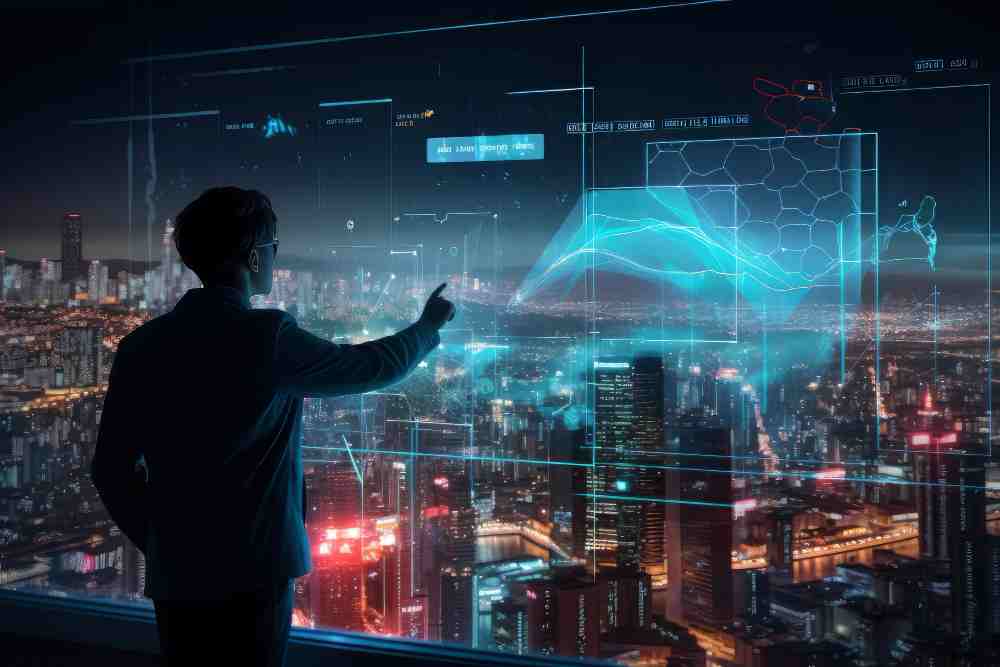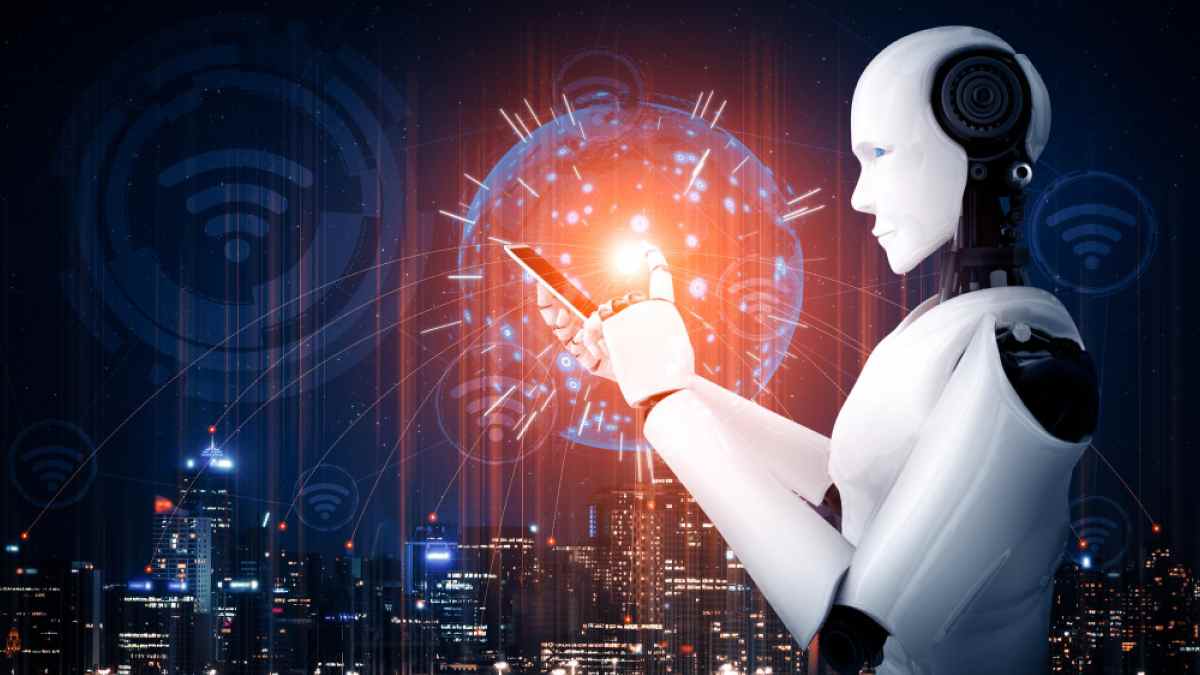The Information Technology (IT) field is on the brink of significant transformation, driven by rapid advancements and emerging technologies. As we look to the future, several key trends and innovations are set to redefine the IT landscape, offering new opportunities and challenges. This blog explores the future of the IT field, focusing on the technologies and trends that will shape its evolution.
Artificial Intelligence and Machine Learning
Artificial Intelligence (AI) and Machine Learning (ML) are expected to become even more prominent in the IT field. These technologies are already revolutionizing industries by automating tasks, analyzing vast amounts of data, and providing actionable insights.
Future Trends:
- AI Integration: AI will be increasingly integrated into various IT systems and applications, enhancing capabilities in areas like cybersecurity, customer service, and business intelligence.
- Autonomous Systems: ML algorithms will enable more sophisticated autonomous systems, from self-driving vehicles to intelligent virtual assistants.
- Predictive Analytics: AI will improve predictive analytics, helping businesses make data-driven decisions and anticipate market trends.
Opportunities:
- New Career Paths: Roles in AI and ML development, data science, and AI ethics will continue to grow.
- Innovation Acceleration: AI-driven innovations will lead to breakthroughs in sectors such as healthcare, finance, and manufacturing.
Quantum Computing
Quantum computing holds the promise of solving complex problems that are beyond the reach of classical computers. By leveraging the principles of quantum mechanics, quantum computers can process information at unprecedented speeds.
Future Trends:
- Research and Development: Significant investments will be made in quantum research, with breakthroughs expected in areas like cryptography, materials science, and drug discovery.
- Hybrid Computing: Integration of quantum computing with classical systems will enable more powerful and versatile computing solutions.
Opportunities:
- New Solutions: Quantum computing will enable the development of solutions for problems currently unsolvable by classical computers.
- Economic Impact: Industries such as pharmaceuticals and finance will benefit from enhanced computational capabilities.
Edge Computing
Edge computing is gaining traction as a way to process data closer to where it is generated, reducing latency and bandwidth use. This is particularly important for applications that require real-time processing, such as IoT devices and autonomous systems.
Future Trends:
- Decentralized Processing: Edge computing will decentralize data processing, reducing reliance on central data centers.
- Enhanced IoT: The growth of IoT devices will drive the need for more edge computing solutions to handle the massive amounts of data they generate.
Opportunities:
- Improved Performance: Edge computing will enhance the performance of applications requiring low latency and high reliability.
- Innovation in IoT: Increased edge computing capabilities will drive innovation in smart cities, industrial automation, and connected devices.
Cybersecurity Advancements
As cyber threats become more sophisticated, the IT field will see continued advancements in cybersecurity. Protecting data and systems will remain a top priority, with new strategies and technologies emerging to combat evolving threats.
Future Trends:
- AI-Powered Security: AI and ML will be used to detect and respond to cyber threats in real-time.
- Zero Trust Architecture: The zero trust model, which assumes that threats can be internal or external, will become more prevalent in securing networks and data.
Opportunities:
- Enhanced Security Solutions: New cybersecurity technologies will provide better protection against data breaches and cyber attacks.
- Growing Demand for Expertise: The need for cybersecurity professionals will increase as organizations seek to safeguard their digital assets.
Blockchain and Decentralized Technologies
Blockchain technology is not only the foundation for cryptocurrencies but also has the potential to transform various sectors through its decentralized and secure nature.
Future Trends:
- Beyond Cryptocurrency: Blockchain will find applications in supply chain management, digital identity verification, and smart contracts.
- Decentralized Finance (DeFi): The rise of DeFi will challenge traditional financial systems by offering decentralized financial services.
Opportunities:
- Innovation in Transactions: Blockchain will enable more secure and transparent transactions across industries.
- New Business Models: Decentralized technologies will create new business models and opportunities for startups and established companies alike.
The Evolution of Cloud Computing
Cloud computing continues to evolve, with advancements aimed at making cloud services more flexible, secure, and cost-effective. The future of cloud computing will involve greater integration with other technologies and new service models.
Future Trends:
- Multi-Cloud Strategies: Organizations will adopt multi-cloud strategies to leverage the best features of different cloud providers.
- Serverless Computing: Serverless computing will simplify application development and reduce operational costs by abstracting infrastructure management.
Opportunities:
- Increased Flexibility: Cloud computing will offer more options for scaling and managing IT resources.
- Cost Efficiency: Organizations will benefit from reduced costs and improved efficiency through serverless and multi-cloud solutions.
Augmented Reality (AR) and Virtual Reality (VR)
AR and VR technologies are set to revolutionize various industries by providing immersive and interactive experiences. These technologies will become more integrated into daily life and business operations.
Future Trends:
- Enhanced User Experiences: AR and VR will offer more immersive experiences in gaming, training, and remote collaboration.
- Industry Applications: Applications in sectors such as education, healthcare, and real estate will grow, offering new ways to engage and interact with users.
Opportunities:
- Innovative Solutions: AR and VR will drive innovation in user interfaces and immersive experiences.
- Market Expansion: The market for AR and VR technologies will expand, creating new opportunities for developers and businesses.
Conclusion
The future of the IT field is brimming with possibilities, driven by advancements in AI, quantum computing, edge computing, cybersecurity, blockchain, cloud computing, and AR/VR. These technologies will reshape industries, enhance capabilities, and create new opportunities for innovation and growth.
As the IT landscape continues to evolve, staying informed about emerging trends and adapting to new technologies will be crucial for professionals and organizations alike. Embracing these changes will enable businesses to stay competitive and leverage the full potential of the technologies shaping our future.





